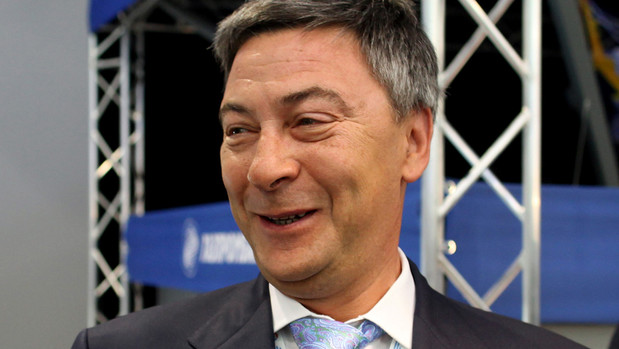Brokerdealer.com blog update courtesy of extract from 24 Oct Bloomberg LP coverage by reporters Irina Reznik and Anna Baraulina
When he’s not cruising the streets of Austria in his gray Tesla Model S, Andrey Akimov can often be found behind a desk on the seventh floor of a nondescript office building just across the Moskva River from the Kremlin.
Two bullet-proof doors and one small sign are the only clues that this is the control center of a financier who’s helped turn some of Vladimir Putin’s closest allies into multibillionaires. For a man who honed his trade in the hushed back rooms of Vienna and Zurich during the Cold War and who is now, as friends say, the most secretive banker in a country run by a former spy, this is how it should be.
While Akimov, 61, hasn’t avoided sanctions against the lender he’s run for a dozen years, state-controlled OAO Gazprombank, Russia’s third largest, he has not been singled out personally. By contrast, billionaire Yuri Kovalchuk, the largest shareholder of Bank Rossiya, the 16th biggest, was blacklisted by the U.S. in its first round of penalties over the Ukraine conflict in March for being what the Treasury called a “cashier” for Putin. Akimov, who’s never appeared on a global rich list, owns about 0.2 percent of the bank, equal to $1.7 million of shareholder equity, company filings show.
Power Broker
Akimov occupies a key position in Putin’s intricate power system and the fact that few people know it is a tribute to his skill as a behind-the-scenes broker, said UBS AG (UBSN) Russia Chairman Rair Simonyan, who has known Akimov for decades. Simonyan, 67, joined UBS in January, after running Morgan Stanley (MS)’s Moscow office for 14 years and working as an adviser for eight months to OAO Rosneft (ROSN) Chief Executive Officer Igor Sechin, who was added to the U.S. blacklist in April.
“Andrey is able to maintain professional relationships with everyone in Putin’s inner circle and beyond, even though some of them won’t even talk to each other,” Simonyan said in an interview in Moscow. “These people accept his mediation, regardless of their attitudes toward each other.”
Akimov, a fluent speaker of English and, like Putin, German, has never given a media interview, according to Gazprombank’s press service. Putin’s spokesman, Dmitry Peskov, declined to comment on the president’s relationship with Akimov.
“Andrey is a very, very secretive man, even for a banker,” Simonyan said. “And Gazprombank is a very Russian bank. Foreigners wouldn’t understand it.”
When Akimov took over Gazprombank in 2002, it was little more than a “piggy bank” for managers of the world’s largest gas producer, with less than $3.8 billion of assets, Simonyan said. Now it has $96 billion.
For the full article from Bloomberg LP, please click here



